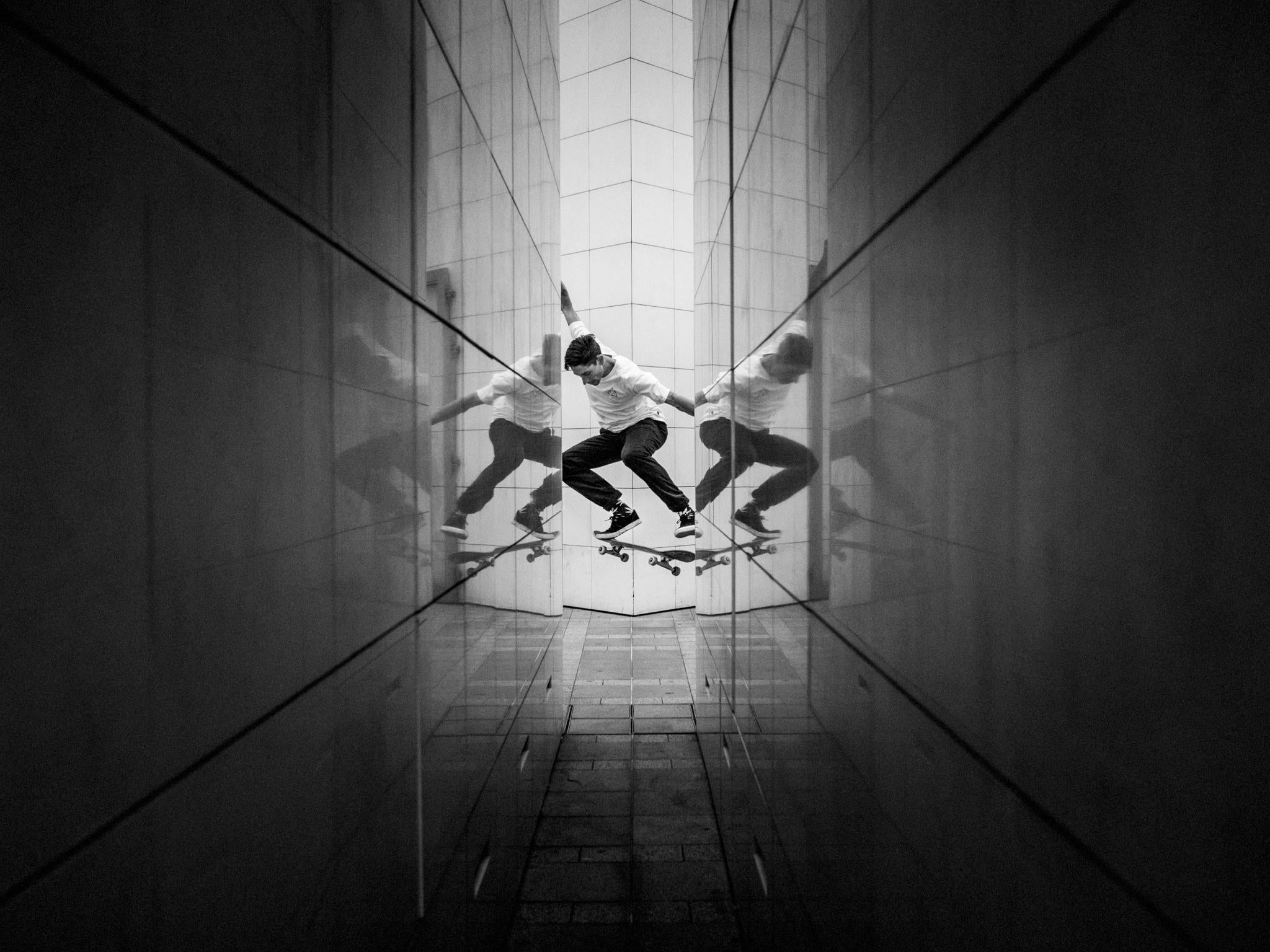The Independent's journalism is supported by our readers. When you purchase through links on our site, we may earn commission.
Catch in the Air: Stunning photos capture the connection between skateboarding and architecture
Photographer Fred Mortagne has been documenting the skate scene for a decade-and-a-half. His work highlights how skateboarding and architecture are inextricable

Your support helps us to tell the story
From reproductive rights to climate change to Big Tech, The Independent is on the ground when the story is developing. Whether it's investigating the financials of Elon Musk's pro-Trump PAC or producing our latest documentary, 'The A Word', which shines a light on the American women fighting for reproductive rights, we know how important it is to parse out the facts from the messaging.
At such a critical moment in US history, we need reporters on the ground. Your donation allows us to keep sending journalists to speak to both sides of the story.
The Independent is trusted by Americans across the entire political spectrum. And unlike many other quality news outlets, we choose not to lock Americans out of our reporting and analysis with paywalls. We believe quality journalism should be available to everyone, paid for by those who can afford it.
Your support makes all the difference.Skateboarding – the pastime of teens and no-good punks – and architecture – that lofty, high-brow topic – may seem worlds apart. But French photographer Fred Mortagne has spent a decade-and-a-half proving how they are inextricably linked and showing skateboarding “for what it really is”.
The director and photographer, also known as French Fred, lives in Lyon, France, and documents the style and aesthetics of skateboarding culture. The fruits of his photography project spanning 2000 to 2015 are compiled in his new book: Attraper Au Vol, or “Catch in the Air”.
The monochrome images of skaters in action are as much a celebration of the culture as the buildings and spaces that they use as their temporary urban playgrounds.
Icons of skateboarding featured in the book include Ali Boulala, Jeremie Daclin and Charles Collet.
“I like my pictures to have a timeless feel, and a certain abstraction. Architecture plays a crucial role in my compositions,” he told The Independent.
“I always thought the environment around the skateboarders was too much left on the side of classical skateboarding photography, while it is usually stunning.”
Skateboarding has been central to his identity for most of his life, and he is drawn to the freedom, the culture, and the creativity that can emerge from it – from fashion to music and art.
Similarly to the well-designed architecture, skateboarding is more powerful than one might realise. As an act of civil disobedience – skateboarders are no strangers to being chased from public spaces and private property by angry security guards – skateboarding encourages a creative mind-set which goes against the mainstream, he says.
“What I love about skatebaording, and that’s one reason why I promote it, is that it helps thinking on your own, to become an individual, and to take some distance from the modern societies chaos. It helped me become a better person, more conscious of the word I live in, and what I want to bring to it,” he says.
“Skateboarding has many facets, and my photography tries to make one of them to shine.”
But Mortagne is also protective of his pastime that is periodically seized upon by mainstream culture, from Avril Lavigne in the early noughties to teens clutching penny boards and Thrasher t-shirts now.
“It’s a tricky subject,” he says. “With my work I try to make skateboarding accessible to non-skateboarders, not necessarily to make them want to skate, but to make them enjoy skateboarding for what it really is.”
“I think there are interesting sociological aspects to understand about skateboarding. With it become mainstream it risks losing a part of his soul. Then again I don’t worry so much, because there will always be the majority of skateboarders who are doing it for what it is, not because it is trendy, and that will always make the difference. It’s a difficult sport and it’s not for everyone.
“Those who are really doing it out in the streets will always keep its soul alive.”
Join our commenting forum
Join thought-provoking conversations, follow other Independent readers and see their replies
Comments